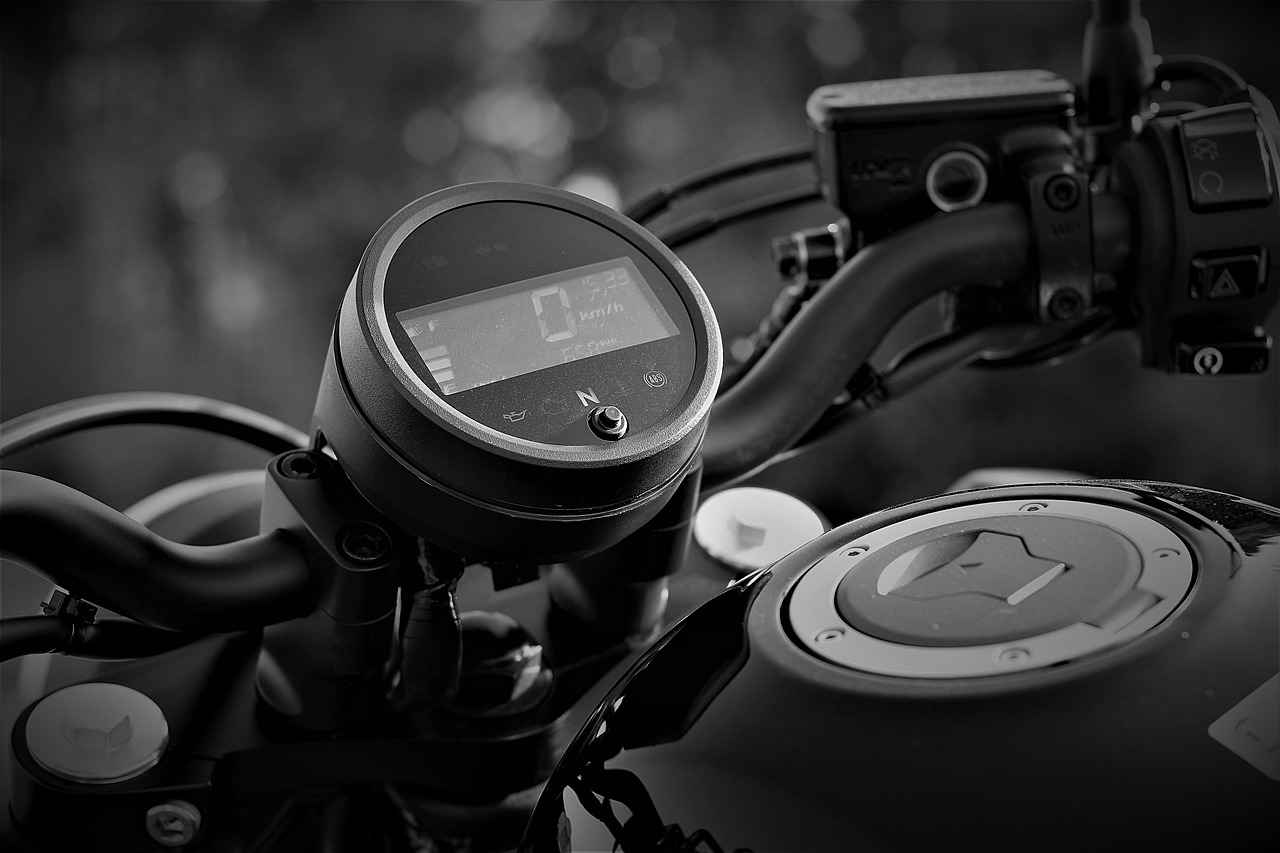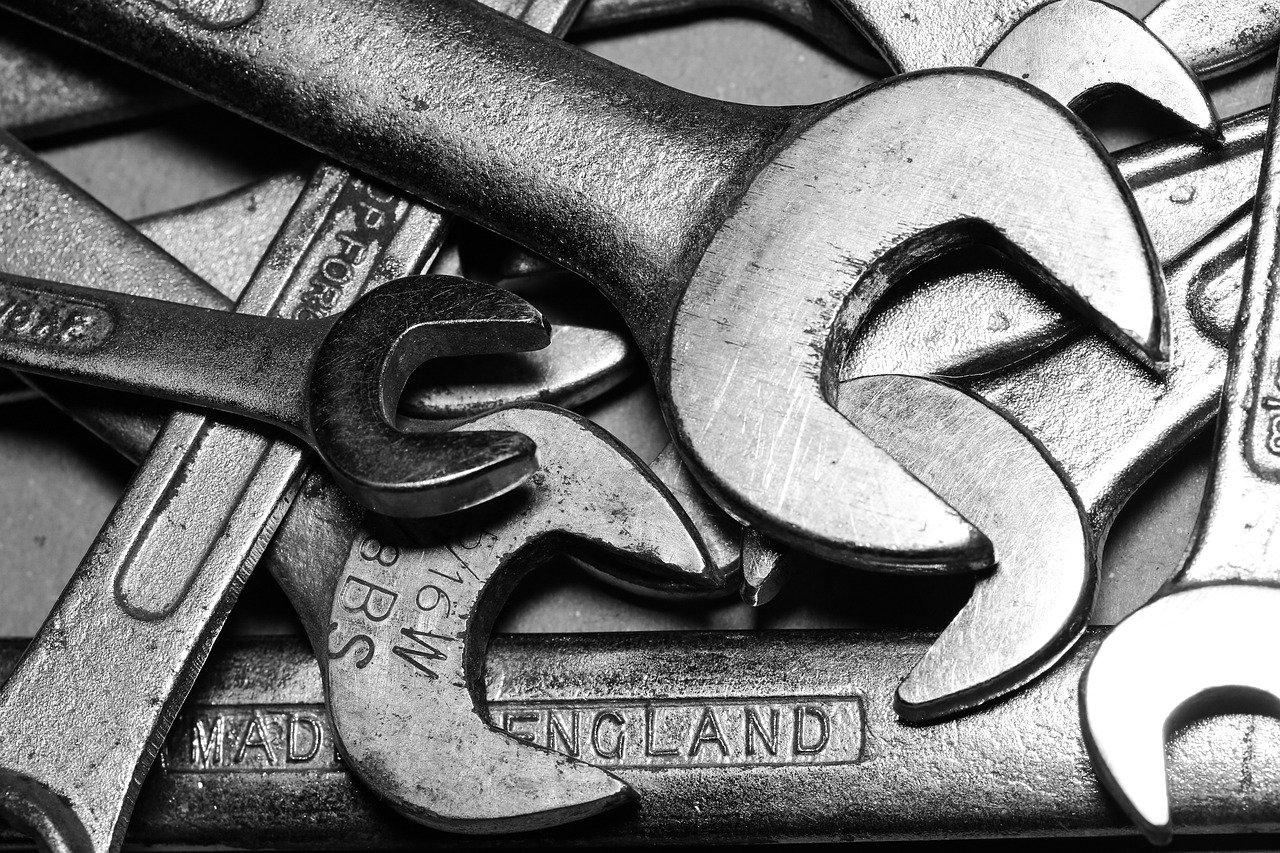The Honda Accord has long been celebrated for its reliability and longevity. Many owners cherish their vehicles for years, often surpassing the 200,000-mile mark with proper care. This article delves into the factors influencing the lifespan of a Honda Accord, offering maintenance tips and sharing real-world experiences from owners to provide a comprehensive understanding of its durability.
The average lifespan of a Honda Accord can vary significantly based on several factors. However, numerous reports indicate that with diligent maintenance, many owners enjoy their vehicles for over 200,000 miles. Some even reach milestones of 300,000 miles or more, showcasing the Accord’s robust engineering.
Several key factors can affect how long a Honda Accord lasts, including:
- Driving Habits: Gentle acceleration and smooth braking can reduce wear and tear.
- Maintenance Practices: Regular check-ups and timely repairs are crucial for longevity.
- Environmental Conditions: Vehicles in harsher climates may require more frequent maintenance.
Understanding these factors can empower owners to maximize their vehicle’s lifespan.
Regular maintenance is essential for extending the life of any vehicle, and the Honda Accord is no exception. Key maintenance practices include:
- Oil Changes: Changing the oil every 5,000 to 7,500 miles is vital for engine health.
- Tire Rotations: Regularly rotating tires can improve handling and extend tire life.
- Brake Inspections: Keeping brakes in top condition is crucial for safety and performance.
Adhering to the manufacturer’s recommended service schedule, typically every 7,500 miles or six months, can prevent significant issues and keep the vehicle running smoothly. This proactive approach can save owners from costly repairs down the line.
Driving habits significantly influence a vehicle’s lifespan. Owners who practice smooth driving techniques, avoid aggressive acceleration, and maintain a steady speed often see their Honda Accords last longer. Additionally, limiting short trips can reduce engine wear, as engines operate best when fully warmed up.
Like any vehicle, the Honda Accord may experience issues over time. Common problems include:
- Transmission Issues: Regular fluid checks can help mitigate problems.
- Electrical Failures: Keeping an eye on warning lights can prevent larger issues.
- Brake Wear: Monitoring brake performance is essential for safety.
Being attentive to your Honda Accord’s performance is crucial. Signs that maintenance may be needed include:
- Unusual Noises: Any strange sounds could indicate underlying issues.
- Warning Lights: Dashboard alerts should never be ignored.
- Changes in Handling: If the vehicle feels different, it may require inspection.
As mileage increases, certain repairs become more common. These may include:
- Timing Belt Replacement: Typically recommended around 100,000 miles.
- Water Pump Replacement: Often replaced alongside the timing belt.
- Suspension Components: Wear and tear can lead to replacements as mileage accumulates.
Owner testimonials provide invaluable insights into the Honda Accord’s durability. Many drivers report exceeding 200,000 miles with minimal issues, reinforcing its reputation as a reliable vehicle. Long-term owners frequently highlight the Accord’s comfort, low maintenance costs, and overall reliability.
Implementing effective maintenance strategies can significantly enhance the lifespan of your Honda Accord. Consider the following tips:
- Use Genuine Parts: Opting for OEM parts can maintain performance and longevity.
- Monitor Driving Environment: Adjust maintenance practices based on urban versus rural driving conditions.
With proper care and attention, the Honda Accord can remain a dependable companion for many years, making it a wise investment for any driver.

What Is the Average Lifespan of a Honda Accord?
The Honda Accord has long been recognized for its reliability and longevity. Many owners often wonder, This question is crucial for potential buyers and current owners alike, as it directly impacts the vehicle’s value and overall ownership experience. With proper care and maintenance, numerous Honda Accord owners report their vehicles lasting well beyond 200,000 miles. In fact, some have even achieved over 300,000 miles with diligent upkeep.
Several factors can significantly affect the longevity of a Honda Accord. These include:
- Driving Habits: Gentle acceleration and smooth braking can minimize wear and tear.
- Maintenance Practices: Adhering to a strict maintenance schedule is essential.
- Environmental Conditions: Vehicles in harsher climates may experience more wear.
Understanding these factors can help owners maximize their vehicle’s lifespan. Regularly checking tire pressure, fluid levels, and brakes can prevent small issues from becoming major problems.
Regular maintenance is crucial for any vehicle, and the Honda Accord is no exception. Routine tasks such as:
- Oil changes every 5,000 to 7,500 miles
- Brake inspections
- Tire rotations
These practices can significantly enhance the vehicle’s durability and performance. Following the manufacturer’s recommended service schedule can prevent major issues from arising.
To keep a Honda Accord running smoothly, certain maintenance tasks should be prioritized:
- Oil Changes: Regular oil changes are vital for engine health.
- Air Filter Replacements: Changing air filters can improve engine efficiency.
- Brake Maintenance: Regular checks can prevent costly repairs.
Driving habits play a significant role in the wear and tear of a vehicle. For instance:
- Avoiding rapid acceleration and hard braking can extend the life of the engine and brakes.
- Consistent speed on highways can reduce engine strain compared to stop-and-go traffic.
Like any vehicle, the Honda Accord may experience issues over time. Common problems include:
- Transmission issues
- Electrical failures
- Brake wear
Addressing these issues promptly can prevent them from impacting the vehicle’s longevity.
Being vigilant about your Honda Accord’s performance can help catch potential problems early. Look out for:
- Unusual noises
- Warning lights on the dashboard
- Changes in handling or performance
As the mileage on a Honda Accord increases, certain repairs become more common. These include:
- Replacing the timing belt
- Water pump replacement
- Suspension component repairs
Owner testimonials provide valuable insights into the Honda Accord’s longevity. Many drivers report exceeding 200,000 miles with minimal issues, showcasing its reliability. Long-term owners often highlight:
- The vehicle’s durability
- Comfort during long drives
- Low maintenance costs
Implementing effective maintenance strategies can significantly enhance the lifespan of your Honda Accord. For example:
- Using genuine Honda parts for repairs and replacements
- Adapting maintenance strategies based on driving environment
- Regularly inspecting and maintaining tires for optimal performance

What Factors Influence the Longevity of a Honda Accord?
The longevity of a Honda Accord is a topic of great interest among car owners and enthusiasts alike. Understanding the various factors that influence how long this popular vehicle can last is essential for maximizing its lifespan. In this section, we will delve into the key elements that affect the durability of a Honda Accord, providing insights that can help owners make informed decisions regarding their vehicles.
Several critical factors play a significant role in determining how long a Honda Accord can last. By being aware of these factors, owners can take proactive steps to ensure their vehicles remain reliable for many miles. Below are the primary influences on the lifespan of a Honda Accord:
- Driving Habits: The way you drive has a profound impact on your vehicle’s longevity. Smooth acceleration and deceleration, along with obeying speed limits, can reduce wear and tear on essential components.
- Maintenance Practices: Regular maintenance is crucial. Following the manufacturer’s recommended service schedule, including timely oil changes and brake inspections, can prevent minor issues from escalating into significant problems.
- Environmental Conditions: The environment in which you drive also matters. Vehicles exposed to harsh weather conditions, such as extreme heat or cold, may experience more wear. Additionally, driving in urban areas with frequent stop-and-go traffic can lead to increased strain on the engine and brakes.
- Quality of Fuel: Using high-quality fuel can enhance engine performance and efficiency. Poor fuel quality can lead to engine knocking and other issues that may shorten the vehicle’s lifespan.
- Driving Frequency: Frequent short trips can prevent the engine from reaching optimal operating temperature, leading to increased wear. Longer drives allow the engine to run efficiently, benefiting overall longevity.
Regular maintenance is one of the most significant factors in extending the life of a Honda Accord. Routine tasks such as:
- Changing the oil every 5,000 to 7,500 miles
- Replacing air filters
- Inspecting and replacing brake pads as needed
- Rotating tires regularly
These practices not only keep the vehicle running smoothly but also prevent costly repairs down the line.
While the Honda Accord is known for its reliability, like any vehicle, it may encounter issues over time. Common problems include:
- Transmission Issues: Some models may experience transmission problems, especially if maintenance is neglected.
- Electrical Failures: Electrical components can fail, leading to various inconveniences.
- Brake Wear: Regularly checking and maintaining brakes is crucial for safety and longevity.
Owner testimonials reveal valuable insights into the Honda Accord’s lifespan. Many drivers report exceeding 200,000 miles with minimal issues, underscoring its reliability. Long-term owners often highlight:
- Durability and low maintenance costs
- Comfort and driving experience
- Resale value retention
These factors contribute to the Honda Accord’s reputation as a dependable choice for drivers seeking longevity in their vehicles.
Implementing effective maintenance strategies can significantly enhance the lifespan of your Honda Accord. Here are some practical tips:
- Use Genuine Parts: Opting for genuine Honda parts during repairs helps maintain vehicle integrity.
- Follow Service Schedules: Adhering to the manufacturer’s recommended service schedule can prevent major issues.
- Monitor Driving Environment: Adjust maintenance practices based on whether you drive in urban or rural settings.
By understanding these factors and implementing effective maintenance strategies, Honda Accord owners can maximize their vehicle’s lifespan and enjoy a reliable driving experience for many years.
How Does Regular Maintenance Impact Longevity?
Regular maintenance is essential for maximizing the lifespan of any vehicle, and the Honda Accord is no exception. By adhering to a structured maintenance routine, owners can significantly enhance the durability and reliability of their vehicles. This section delves into how consistent upkeep influences the longevity of the Honda Accord and outlines specific maintenance practices that should not be overlooked.
Routine maintenance serves as the foundation for vehicle longevity. For the Honda Accord, regular oil changes, brake inspections, and tire rotations are critical components that contribute to its overall performance. These practices not only prevent potential issues but also ensure that the vehicle operates at its best.
- Oil Changes: It is advisable to change the oil every 5,000 to 7,500 miles to maintain engine health.
- Brake Checks: Regular inspections of the braking system can prevent costly repairs and ensure safety.
- Tire Rotations: Rotating tires every 6,000 to 8,000 miles promotes even wear and extends tire life.
- Fluid Levels: Regularly checking and topping off fluids such as coolant, brake fluid, and transmission fluid is essential.
Following the manufacturer’s recommended service schedule is crucial. Typically, this schedule suggests servicing the vehicle every 7,500 miles or every six months. Adhering to this timeline helps prevent major issues from developing and keeps the Accord in optimal condition.
Regular maintenance not only enhances the vehicle’s lifespan but also improves fuel efficiency, reduces emissions, and increases safety. A well-maintained Honda Accord is less likely to experience unexpected breakdowns, leading to a smoother and more reliable driving experience.
Another important aspect of regular maintenance is its impact on the resale value of the Honda Accord. Vehicles that have documented maintenance records tend to fetch higher prices in the used car market. Potential buyers are often willing to pay more for a car that has been well cared for, as it reflects reliability and longevity.
- Neglecting Scheduled Services: Skipping regular maintenance can lead to severe issues that are costly to fix.
- Using Non-Genuine Parts: Utilizing aftermarket parts can compromise performance and longevity.
- Ignoring Warning Signs: Failing to address warning lights or unusual noises can result in more significant problems down the line.
To ensure you remain diligent with maintenance, consider setting reminders for service appointments or utilizing maintenance tracking apps. Keeping a detailed log of services performed also helps in monitoring the vehicle’s health over time.
In conclusion, regular maintenance is a vital aspect of owning a Honda Accord. By prioritizing essential tasks and adhering to a consistent service schedule, owners can significantly enhance the vehicle’s longevity, performance, and resale value. Investing time and resources into proper upkeep is a decision that pays off in the long run, ensuring a dependable and enjoyable driving experience.
What Maintenance Should Be Prioritized?
When it comes to ensuring the longevity and reliability of your Honda Accord, prioritizing essential maintenance tasks is crucial. Regular upkeep not only enhances performance but also extends the lifespan of your vehicle. This article delves into the key maintenance tasks that every Honda Accord owner should consider to keep their car in optimal condition.
Regular maintenance is the backbone of vehicle longevity. For the Honda Accord, adhering to a systematic maintenance schedule can prevent minor issues from escalating into major repairs. This proactive approach not only saves money but also ensures that your vehicle runs smoothly.
- Oil Changes: One of the most critical tasks is changing the oil every 5,000 to 7,500 miles. Fresh oil lubricates engine components, reduces friction, and helps maintain optimal engine temperature.
- Air Filter Replacement: Replacing air filters regularly ensures that the engine receives clean air, which is essential for efficient combustion. A clogged air filter can lead to decreased performance and fuel efficiency.
- Tire Maintenance: Regularly checking tire pressure and tread depth can enhance safety and improve fuel efficiency. Rotating tires every 6,000 to 8,000 miles promotes even wear.
- Brake Inspections: The braking system is vital for safety. Regular inspections and timely replacements of brake pads and fluids can prevent costly repairs and ensure safe driving.
- Fluid Levels: Regularly checking and topping off fluids, including coolant, transmission fluid, and brake fluid, is essential for the smooth operation of your Accord.
Creating a maintenance schedule tailored to your driving habits and the manufacturer’s recommendations is essential. You can use a simple calendar or a maintenance app to track service dates and mileage. Following a structured schedule helps ensure that no critical maintenance tasks are overlooked.
By prioritizing maintenance tasks, you can:
- Enhance Performance: Regular maintenance keeps your Honda Accord running at peak performance, providing a smoother driving experience.
- Increase Longevity: A well-maintained vehicle can easily surpass 200,000 miles, as many owners have reported.
- Improve Safety: Regular checks on critical systems like brakes and tires ensure that you and your passengers are safe on the road.
- Boost Resale Value: A well-documented maintenance history can significantly increase your car’s resale value, making it more attractive to potential buyers.
While regular maintenance is essential, it’s equally important to avoid common pitfalls:
- Neglecting Warning Signs: Ignoring unusual noises or warning lights can lead to more severe issues.
- Using Non-Genuine Parts: Opting for aftermarket parts can compromise the performance and longevity of your vehicle.
- Skipping Scheduled Services: Failing to adhere to the recommended service intervals can result in costly repairs down the line.
In conclusion, prioritizing essential maintenance tasks like oil changes and air filter replacements is vital for keeping your Honda Accord running smoothly. By following a structured maintenance schedule and being proactive about repairs, you can ensure that your vehicle remains reliable for years to come.
How Often Should You Service Your Honda Accord?
When it comes to maintaining your Honda Accord, understanding the service schedule is essential for ensuring the longevity and performance of your vehicle. Regular servicing not only keeps your car running smoothly but also helps in preventing major issues down the line.
Following the manufacturer’s recommended service schedule, typically every 7,500 miles or every six months, is crucial. This routine maintenance can prevent significant problems that may arise due to neglect. Regular service checks can help identify potential issues before they become costly repairs, ensuring that your vehicle remains in top condition.
A standard service for your Honda Accord usually includes:
- Oil and filter changes
- Brake inspections
- Tire rotations and checks
- Fluid level checks (coolant, brake fluid, transmission fluid)
- Battery inspection
- Air filter replacement
Each of these tasks plays a vital role in maintaining your car’s health, contributing to its overall performance and safety.
Neglecting regular maintenance can lead to a variety of issues:
- Engine wear: Old oil can cause engine components to wear out faster.
- Brake failure: Worn brake pads can lead to decreased stopping power, posing a safety risk.
- Poor fuel efficiency: Dirty air filters and old oil can reduce your car’s fuel efficiency.
- Costly repairs: Minor issues can escalate into major repairs if not addressed promptly.
Your driving habits and the conditions in which you drive can also affect how often you should service your Honda Accord. For instance:
- Frequent short trips: If you often drive short distances, your engine may not reach optimal operating temperature, which can lead to increased wear. In this case, more frequent oil changes may be necessary.
- Extreme weather: Driving in harsh conditions, such as extreme heat or cold, can affect your vehicle’s performance, necessitating more frequent checks.
- Heavy loads: Regularly carrying heavy loads can put additional strain on your vehicle, requiring more frequent maintenance.
Adhering to the recommended service schedule offers numerous benefits:
- Increased reliability: Regular maintenance ensures that your vehicle is less likely to break down unexpectedly.
- Improved resale value: A well-maintained vehicle retains its value better than one that has been neglected.
- Enhanced safety: Regular checks can identify potential safety issues, keeping you and your passengers safe on the road.
- Peace of mind: Knowing your vehicle is in good condition can provide confidence during your travels.
In conclusion, adhering to the service schedule for your Honda Accord is not just a recommendation; it is a necessity for maintaining the vehicle’s performance and longevity. By prioritizing regular maintenance, you can enjoy a reliable and safe driving experience for years to come.
How Do Driving Habits Affect Vehicle Longevity?
When it comes to vehicle longevity, driving habits are a crucial factor that can significantly influence how long your vehicle lasts. For instance, the Honda Accord, a popular choice among drivers, can enjoy a long lifespan with the right driving practices. In this section, we will delve into how specific driving behaviors can affect the wear and tear of your Honda Accord.
Several driving habits can either extend or shorten the life of your Honda Accord:
- Smooth Acceleration: Gradual acceleration helps minimize stress on the engine and transmission, reducing wear over time.
- Gentle Braking: Avoiding sudden stops can prevent premature wear on brake pads and rotors.
- Consistent Speed: Maintaining a steady speed, especially on highways, can improve fuel efficiency and reduce engine strain.
- Proper Gear Usage: Using the correct gear for your speed can enhance engine performance and longevity.
Aggressive driving, characterized by rapid acceleration, hard braking, and sharp turns, can lead to increased wear on various vehicle components. This type of driving can:
- Cause engine strain, leading to potential overheating.
- Accelerate brake wear, necessitating more frequent replacements.
- Impact tire health, resulting in uneven wear and the need for earlier replacements.
While driving habits are vital, they work best in conjunction with regular maintenance. Here are some maintenance tips that complement good driving practices:
- Regular Oil Changes: Keeping the engine oil fresh ensures proper lubrication and reduces wear.
- Tire Rotations: Rotating tires regularly can help maintain even wear, improving overall performance.
- Brake Inspections: Regular checks can prevent issues caused by aggressive driving habits.
Adapting your driving style can significantly impact your Accord’s lifespan:
- Practice defensive driving to anticipate potential hazards, reducing the need for sudden maneuvers.
- Plan routes to avoid heavy traffic, which often leads to stop-and-go driving.
- Limit short trips, as frequent cold starts can wear down the engine.
Implementing good driving habits not only enhances the lifespan of your Honda Accord but also offers several other benefits:
- Improved Fuel Efficiency: Smooth driving can lead to better gas mileage.
- Lower Maintenance Costs: Reduced wear means fewer repairs and replacements.
- Enhanced Safety: Defensive driving practices can lead to a lower risk of accidents.
In summary, the way you drive has a profound impact on your Honda Accord’s longevity. By adopting smooth driving habits and combining them with regular maintenance, you can maximize the lifespan of your vehicle. Remember, a little care goes a long way in ensuring that your Honda Accord remains reliable and efficient for many miles to come.

What Are Common Problems That May Arise?
The Honda Accord is renowned for its reliability and longevity, but like any vehicle, it can encounter issues as it ages. Understanding the common problems that may arise is essential for maintaining your Accord’s performance and extending its lifespan. This section will delve into typical issues, their causes, and how to address them effectively.
As with any vehicle, the Honda Accord may experience a variety of problems over time. Some of the most frequently reported issues include:
- Transmission Problems: Many Honda Accord owners have reported transmission issues, particularly in older models. Symptoms can include slipping gears, delayed shifting, or unusual noises when changing gears. Regular transmission fluid changes and prompt attention to warning signs can help mitigate these issues.
- Electrical Failures: Electrical problems can manifest in various forms, from malfunctioning power windows to issues with the vehicle’s lighting system. These problems often stem from faulty wiring or blown fuses. It’s crucial to conduct regular inspections of the electrical components to catch issues early.
- Brake Wear: Brake wear is a common concern for all vehicles, including the Honda Accord. Signs of brake wear may include squeaking or grinding noises, a soft brake pedal, or vibrations when braking. Regular brake inspections and timely replacements of brake pads and rotors are essential for safety.
- Suspension Issues: As the mileage increases, suspension components such as struts and shocks may wear out. Symptoms of suspension problems can include a bumpy ride, uneven tire wear, or a noticeable dip in the vehicle’s stance. Regular checks can help identify these issues before they escalate.
- Oil Leaks: Oil leaks can occur due to worn gaskets or seals. It’s important to regularly check the oil level and look for any signs of leaks under the vehicle. Addressing oil leaks promptly can prevent more significant engine problems down the line.
Being proactive about your Honda Accord’s maintenance can help you identify potential problems early. Here are some signs to watch for:
- Unusual Noises: If you hear strange sounds coming from the engine or transmission, it may indicate a problem that needs attention.
- Warning Lights: Pay close attention to the dashboard warning lights. If any lights illuminate, it’s important to investigate immediately.
- Changes in Handling: A noticeable change in how your Accord drives, such as pulling to one side or difficulty steering, should be addressed promptly.
As your Honda Accord accumulates mileage, certain repairs become more common. These may include:
- Timing Belt Replacement: The timing belt is crucial for engine function and should typically be replaced every 60,000 to 100,000 miles.
- Water Pump Replacement: Often replaced alongside the timing belt, the water pump is vital for engine cooling.
- Suspension Component Replacement: As mentioned earlier, struts and shocks may need replacement as they wear out over time.
By staying informed about these common issues and addressing them promptly, Honda Accord owners can significantly enhance their vehicle’s longevity and reliability.
How Can You Identify Early Signs of Trouble?
Identifying early signs of trouble in your Honda Accord is essential for maintaining its performance and longevity. Regular vigilance can prevent minor issues from escalating into major repairs, saving you time and money. Below, we explore the key indicators that signal your vehicle may need attention.
One of the most telling signs of potential trouble is unusual noises. If you hear clunking, grinding, or squeaking sounds while driving, it may indicate problems with the brakes, suspension, or engine components. Pay close attention to:
- Brake Noises: Squealing or grinding can suggest worn brake pads.
- Engine Noises: Knocking sounds might point to internal engine issues.
- Suspension Noises: Clunking sounds when going over bumps may indicate worn shocks or struts.
The dashboard warning lights of your Honda Accord serve as critical alerts for various systems. If a warning light illuminates, it’s essential to investigate promptly. Common lights include:
- Check Engine Light: This light can indicate a range of issues, from minor to severe.
- Oil Pressure Warning: A sign that your engine may not be receiving adequate lubrication.
- Battery Warning: Indicates potential issues with your battery or charging system.
Changes in how your Honda Accord handles can signal underlying issues. If you notice:
- Pulling to One Side: This may indicate alignment problems or uneven tire pressure.
- Vibrations: Excessive vibrations can suggest tire imbalance or suspension issues.
- Difficulty Steering: This could point to power steering problems or low fluid levels.
Fluid leaks are another critical sign of trouble. Regularly inspect the ground where you park for:
- Oil Leaks: Dark brown or black fluid could indicate an oil leak.
- Coolant Leaks: A green or orange fluid may suggest a cooling system issue.
- Transmission Fluid: A reddish fluid leak can indicate transmission problems.
Adhering to a regular maintenance schedule is crucial for catching potential problems early. Regular oil changes, brake inspections, and tire rotations can significantly enhance your Honda Accord’s longevity and performance. Be proactive and consult your owner’s manual for recommended service intervals.
By remaining vigilant and attentive to your Honda Accord’s performance, you can identify early signs of trouble and address them before they lead to costly repairs. Regular checks for unusual noises, warning lights, changes in handling, and fluid leaks, combined with consistent maintenance, will help ensure your vehicle remains reliable for years to come.
What Repairs Are Commonly Needed as Mileage Increases?
As your Honda Accord accumulates mileage, it’s essential to be aware of the common repairs that may arise. Many owners find that certain components are more likely to require attention as the odometer ticks higher. Understanding these potential issues can help you prepare and maintain your vehicle effectively.
With increased mileage, a Honda Accord may experience a variety of repairs. Some of the most frequently reported issues include:
- Timing Belt Replacement: The timing belt is crucial for synchronizing the engine’s components. Typically, it should be replaced every 60,000 to 100,000 miles. Failure to replace it can lead to serious engine damage.
- Water Pump Issues: The water pump circulates coolant throughout the engine. As mileage increases, the water pump may wear out, leading to overheating and potential engine failure.
- Suspension Component Wear: Components like struts, shocks, and bushings may need replacement after extensive use. Signs of wear include a rough ride, uneven tire wear, or noise when driving over bumps.
- Brake System Maintenance: Brake pads and rotors wear down over time and should be inspected regularly. Depending on driving habits, they may need replacement every 30,000 to 70,000 miles.
- Transmission Service: As the mileage increases, transmission fluid may become contaminated, leading to shifting issues. Regular fluid changes can help maintain transmission health.
- Exhaust System Repairs: Components such as mufflers and catalytic converters can corrode over time. If you notice unusual noises or decreased performance, it may be time for an inspection.
Being proactive about maintenance can significantly reduce the likelihood of unexpected repairs. Here are some tips:
- Follow the Maintenance Schedule: Adhering to the manufacturer’s recommended maintenance schedule is crucial. Regular oil changes, fluid checks, and part inspections can catch issues early.
- Keep an Eye on Warning Lights: Dashboard warning lights can indicate potential problems. Addressing these alerts promptly can prevent more significant issues down the road.
- Conduct Regular Inspections: Periodically inspecting your vehicle for wear and tear can help you identify problems before they escalate. Look for leaks, unusual noises, or changes in performance.
- Use Quality Parts: When repairs are necessary, using genuine Honda parts or high-quality aftermarket components can ensure reliability and longevity.
Addressing repairs as they arise can lead to several benefits:
- Improved Safety: Keeping your vehicle in good repair ensures that it operates safely, reducing the risk of accidents.
- Enhanced Performance: Timely repairs can improve your Accord’s performance and fuel efficiency, making your driving experience more enjoyable.
- Cost Savings: Preventative maintenance and prompt repairs can save you money in the long run by avoiding more extensive damage and costly repairs.
In conclusion, understanding the common repairs needed as mileage on your Honda Accord increases can help you maintain your vehicle effectively. By staying informed and proactive, you can enjoy a reliable and long-lasting driving experience.

How Do Owner Experiences Reflect Honda Accord Longevity?
The longevity of the Honda Accord is often a topic of discussion among car enthusiasts and potential buyers alike. One of the most compelling ways to gauge the durability of this vehicle is through the experiences of its owners. Owner testimonials can provide invaluable insights into the Honda Accord’s longevity, often revealing stories of high mileage and minimal maintenance issues. This article delves into the real-world experiences of Honda Accord owners, highlighting their journeys and the factors that contribute to the car’s impressive lifespan.
Many long-term Honda Accord owners share their experiences, emphasizing the vehicle’s reliability and durability. It is not uncommon to find accounts of drivers surpassing 200,000 miles with their Accords, often with only routine maintenance required. These testimonials frequently highlight:
- Minimal Repairs: Owners report that, aside from regular oil changes and tire rotations, they have faced few significant repairs.
- Comfort and Performance: Many drivers appreciate the comfort level and performance of their vehicles, even at high mileage.
- Low Maintenance Costs: The overall maintenance costs tend to be lower compared to other vehicles in the same class, making the Accord a cost-effective choice.
Several factors play a crucial role in the longevity of the Honda Accord, as echoed by owner experiences:
- Regular Maintenance: Owners who adhere to a strict maintenance schedule report better performance and fewer issues over time.
- Driving Habits: Gentle driving habits, such as avoiding rapid acceleration and hard braking, can significantly extend the lifespan of the vehicle.
- Environmental Conditions: Cars driven in milder climates tend to show less wear and tear than those subjected to extreme weather conditions.
Certain models and years of the Honda Accord have garnered a reputation for exceptional longevity. For instance, the 2003-2007 Honda Accord is frequently mentioned in owner testimonials for its robust engine and build quality. Owners of these models often report:
- Engine Durability: Many drivers have noted that the engines in these models can withstand significant mileage with proper care.
- High Resale Value: Due to their reliability, these models tend to retain their value better than many competitors.
To ensure your Honda Accord lasts as long as possible, consider implementing the following maintenance tips:
- Follow the Manufacturer’s Guidelines: Adhering to the recommended service schedule is crucial for maintaining optimal performance.
- Use Genuine Parts: Utilizing authentic Honda parts during repairs can help maintain the integrity of your vehicle.
- Monitor Performance: Pay attention to any changes in performance, such as unusual noises or warning lights, to address potential issues early.
In conclusion, the experiences of Honda Accord owners paint a clear picture of the vehicle’s longevity. With proper maintenance and mindful driving habits, many owners have successfully pushed their Accords beyond the 200,000-mile mark, often with minimal issues. These testimonials not only reinforce the Accord’s reputation for reliability but also provide valuable insights for current and prospective owners looking to maximize the lifespan of their vehicles.
What Do Long-Term Owners Say About Their Accords?
The Honda Accord has long been celebrated for its longevity and reliability, with many long-term owners eager to share their experiences. These testimonials provide a wealth of information about what makes the Accord a standout choice in the automotive market. From its detailed engineering to its comfort and low maintenance costs, the Accord has built a reputation that resonates with drivers across the globe.
One of the most frequently mentioned attributes by long-term Honda Accord owners is its durability. Many have reported exceeding 200,000 miles with minimal issues. Owners often highlight that with regular maintenance, the vehicle remains robust, making it a wise investment. This longevity is not just a matter of luck; it stems from Honda’s commitment to quality and innovation in engineering.
Another common theme in owner testimonials is the comfort that the Honda Accord provides. Many drivers appreciate the spacious interior and ergonomic design, which make long drives enjoyable. Features such as supportive seating and advanced climate control contribute to a pleasant driving experience, reinforcing the Accord’s reputation as a family-friendly vehicle.
Long-term owners frequently cite low maintenance costs as a significant advantage of owning a Honda Accord. Routine services such as oil changes, tire rotations, and brake checks are often affordable, and many owners find that they can go long stretches without major repairs. This aspect not only contributes to the overall satisfaction of ownership but also makes the Accord an economical choice for budget-conscious drivers.
- Reliability: Many owners emphasize that their Accords have been dependable, even in challenging conditions.
- Resale Value: Several long-term owners note that their vehicles retain a strong resale value, making them a smart investment.
- Community Support: Accord owners often engage in forums and local clubs, sharing tips and experiences that further enhance their ownership journey.
Long-term Honda Accord owners often mention specific features that contribute to the vehicle’s longevity. For instance, the engine performance is frequently praised, with many noting that the engines are built to last. Additionally, safety features and technology improve the driving experience, making the Accord not just a reliable vehicle but also a modern one.
In conclusion, long-term Honda Accord owners consistently highlight the vehicle’s durability, comfort, and low maintenance costs as key reasons for their satisfaction. These attributes not only reinforce the Accord’s reputation as a reliable choice but also create a community of loyal drivers who appreciate the value it brings to their lives. Whether you’re considering purchasing a new or used model, the experiences shared by these owners can provide valuable insights into what you can expect from a Honda Accord.
Are There Any Notable Honda Accord Models for Longevity?
The Honda Accord has built a solid reputation for longevity and reliability, making it a preferred choice for many used car buyers. Certain models and years stand out for their exceptional engineering and build quality, often leading to impressive mileage and durability. In this section, we will explore some of the most notable Honda Accord models renowned for their longevity.
Several factors contribute to the Honda Accord’s reputation for longevity. The combination of high-quality materials, advanced engineering, and a focus on reliability has made specific models particularly noteworthy. Owners frequently report their vehicles lasting well beyond 200,000 miles, with some even exceeding 300,000 miles with proper care.
- 1990-1997 Honda Accord: This generation is often praised for its robust build and simple mechanics, making repairs more straightforward and affordable.
- 2003-2007 Honda Accord: Known for its solid performance and fuel efficiency, this model has a loyal following and is often seen as one of the best used options.
- 2013-2017 Honda Accord: With a blend of modern technology and traditional reliability, this generation offers advanced safety features while maintaining the Accord’s reputation for durability.
Owner testimonials provide valuable insights into the longevity of specific Honda Accord models. Many long-term owners express satisfaction with their vehicles, noting that they have experienced minimal issues over the years. For instance, the 2003-2007 model is frequently mentioned for its low maintenance costs and dependable performance, making it a favorite among budget-conscious buyers.
Even the most reliable Honda Accord models require regular maintenance to achieve their full lifespan potential. Owners of the 2013-2017 models often emphasize the importance of adhering to the manufacturer’s maintenance schedule, which includes regular oil changes, brake inspections, and tire rotations. These practices help prevent common issues that can arise as mileage increases.
Certain features in Honda Accord models contribute to their durability. For example, the use of high-strength steel in the frame enhances structural integrity, while advanced engine technology improves fuel efficiency and reduces wear. Additionally, models equipped with CVT (Continuously Variable Transmission) have been noted for their smooth operation and reliability, provided they are maintained correctly.
While Honda Accords are known for their longevity, some common issues can arise, particularly in older models. Transmission problems, electrical system failures, and brake wear are among the most frequently reported concerns. Owners should be proactive in addressing these issues to ensure their vehicles remain reliable for years to come.
To maximize the lifespan of your Honda Accord, consider implementing these practical tips:
- Follow the recommended maintenance schedule diligently.
- Use genuine Honda parts for replacements to maintain performance.
- Adopt smooth driving habits to reduce wear and tear.
- Regularly inspect and address any unusual noises or warning lights.
In summary, certain Honda Accord models are celebrated for their longevity and reliability, making them ideal choices for used car buyers. By understanding the features, maintenance practices, and owner experiences associated with these models, prospective buyers can make informed decisions that will lead to long-lasting satisfaction.

What Maintenance Tips Can Help You Maximize Mileage?
When it comes to maximizing the lifespan of your Honda Accord, implementing effective maintenance strategies is crucial. By taking proactive steps, you can ensure that your vehicle remains a reliable mode of transportation for many years. Here are some essential maintenance tips that can significantly enhance the longevity of your Honda Accord.
One of the most important maintenance tasks is changing the oil regularly. Oil lubricates the engine and helps prevent wear and tear. It is recommended to change the oil every 5,000 to 7,500 miles, depending on your driving habits and the type of oil used. Regular oil changes keep the engine running smoothly and efficiently.
The brake system is vital for safety and performance. Regularly inspect the brake pads, rotors, and fluid levels. Replacing worn brake pads before they damage the rotors can save you money in the long run and ensure your vehicle stops effectively.
Tires are the only contact your vehicle has with the road, making their maintenance essential. Check tire pressure monthly and ensure they are inflated to the recommended levels. Additionally, rotate your tires every 6,000 to 8,000 miles to promote even wear and extend their lifespan.
The air filter plays a crucial role in maintaining engine efficiency. A clogged air filter can reduce performance and fuel efficiency. It is advisable to replace the air filter every 15,000 to 30,000 miles, depending on driving conditions. A clean air filter allows for better airflow, improving engine performance.
Regularly checking and changing essential fluids, including transmission fluid, coolant, and brake fluid, is vital. Each fluid has a specific lifespan and should be replaced according to the manufacturer’s recommendations. Keeping these fluids at optimal levels ensures all systems function correctly, preventing costly repairs.
Battery health is often overlooked but is essential for reliable starts and overall vehicle performance. Check the battery terminals for corrosion and clean them as needed. Additionally, test your battery regularly to ensure it holds a charge, especially before winter or long trips.
While DIY maintenance is beneficial, professional inspections are equally important. Schedule regular check-ups with a certified mechanic who can identify potential issues before they escalate. Professional mechanics have the expertise to spot problems that may not be apparent to the average driver.
Your driving style significantly impacts the longevity of your Honda Accord. Avoiding abrupt acceleration and hard braking can reduce wear on the engine and brakes. Additionally, maintaining a steady speed on the highway can improve fuel efficiency and reduce strain on the vehicle.
The environment in which you drive also affects your vehicle’s lifespan. Urban driving often leads to more stop-and-go traffic, which can increase wear. In contrast, driving in rural areas may expose your Accord to dust and debris. Adapting your maintenance routine based on your driving environment can help mitigate these effects.
By following these maintenance tips, you can significantly enhance the lifespan of your Honda Accord, ensuring it remains a reliable vehicle for years to come. Remember, regular care and attention to detail not only improve performance but also contribute to a safer driving experience.
How Important Is It to Use Genuine Parts?
When it comes to maintaining the performance and longevity of your Honda Accord, the importance of using genuine Honda parts cannot be overstated. These parts are specifically designed to fit and function perfectly within your vehicle, ensuring optimal performance and reliability. In this section, we will explore the reasons why using authentic parts is crucial for your Honda’s health.
Using genuine Honda parts offers several advantages over aftermarket alternatives. Here are some key reasons:
- Quality Assurance: Genuine parts are manufactured to the same specifications as the original components of your vehicle, ensuring high quality and durability.
- Perfect Fit: These parts are designed to fit seamlessly into your Honda Accord, reducing the risk of installation issues and potential damage.
- Enhanced Performance: Genuine parts help maintain the vehicle’s performance, ensuring that systems function as intended.
- Warranty Protection: Using genuine parts often helps maintain any existing warranties on your vehicle, protecting your investment.
The longevity of your Honda Accord is significantly influenced by the parts used in repairs and replacements. Here’s how:
- Reliability: Genuine parts are designed for long-term use, which means they are less likely to fail compared to aftermarket options.
- Prevention of Further Damage: Using the correct parts can prevent complications that might arise from improper fit or inferior quality, which can lead to costly repairs down the line.
- Consistent Performance: Genuine parts ensure your vehicle operates at peak efficiency, contributing to better fuel economy and performance.
While aftermarket parts may seem like a cost-effective option, they come with their own set of risks:
- Inconsistent Quality: The quality of aftermarket parts can vary greatly, leading to potential failures and safety issues.
- Poor Fit: Aftermarket parts may not fit correctly, which can cause misalignment and further mechanical issues.
- Warranty Voids: Using non-genuine parts can sometimes void your vehicle’s warranty, leaving you unprotected against future repairs.
To ensure that you are using genuine Honda parts, consider the following:
- Buy from Authorized Dealers: Purchase parts from Honda dealerships or authorized retailers to guarantee authenticity.
- Check Part Numbers: Verify the part numbers against Honda’s specifications to ensure you have the correct components.
- Ask for Documentation: Request documentation or certification from the seller to confirm the parts are genuine.
In summary, using genuine Honda parts for repairs and replacements is essential for maintaining the integrity and performance of your Honda Accord. By investing in authentic parts, you can enhance your vehicle’s longevity, reliability, and overall driving experience. This commitment to quality not only protects your investment but also ensures that your Honda continues to deliver the performance you expect for many miles to come.
What Role Does Driving Environment Play?
The driving environment significantly influences vehicle wear and tear, impacting the overall longevity and performance of cars like the Honda Accord. Understanding how different settings—urban versus rural—affect your vehicle can guide owners in adapting their maintenance strategies effectively.
Urban driving typically involves frequent stops, starts, and short trips. This driving pattern can lead to increased wear on various components of a vehicle. Braking systems are particularly affected, as constant stopping can lead to faster brake pad wear. Additionally, short drives may not allow the engine to reach optimal operating temperature, which can lead to increased engine deposits and reduced fuel efficiency.
In contrast, rural driving often features longer stretches of road with fewer stops. This can be beneficial for the engine, allowing it to operate efficiently over extended periods. However, rural environments can present their own challenges. Road conditions may be less maintained, leading to potential damage from potholes or rough terrain. Furthermore, exposure to dirt and debris can affect the vehicle’s exterior and undercarriage, necessitating more frequent cleaning and checks.
- For Urban Drivers: Regularly inspect and replace brake pads and rotors. Consider using high-quality oil that can withstand short trips and frequent idling.
- For Rural Drivers: Schedule more frequent inspections of the suspension system and undercarriage. Ensure that air filters are cleaned or replaced regularly to combat dust and debris.
Absolutely! Weather conditions can exacerbate the effects of driving environments. For instance, urban areas may have more pollution, which can lead to corrosion over time. In rural settings, exposure to elements like mud, snow, and ice can also impact vehicle integrity. Owners should be aware of these factors and adjust their maintenance routines accordingly.
Regardless of driving environment, certain maintenance practices are critical:
- Regular Oil Changes: Essential for all drivers to ensure engine longevity.
- Brake Inspections: More frequent checks are necessary in urban settings.
- Suspension Checks: Crucial for rural drivers who encounter rough roads.
By understanding the impact of their driving environment, Honda Accord owners can make informed decisions about their vehicle maintenance. This proactive approach not only enhances vehicle performance but also extends its lifespan, ensuring that the Accord remains a reliable companion on the road.
Frequently Asked Questions
- How long can a Honda Accord typically last?
The Honda Accord is known for its durability, with many owners reporting their vehicles lasting over 200,000 miles when properly maintained.
- What maintenance is essential for longevity?
Regular maintenance such as oil changes, brake checks, and tire rotations are crucial. Prioritizing these tasks can help keep your Accord running smoothly for years.
- How do driving habits impact the lifespan of a Honda Accord?
Driving habits significantly affect wear and tear. Smooth driving and avoiding harsh acceleration can extend the life of your vehicle.
- What are common issues as mileage increases?
As your Honda Accord accumulates miles, you may encounter common issues like transmission problems and brake wear. Staying alert to these can help you address them early.
- Should I use genuine Honda parts?
Absolutely! Using genuine Honda parts for repairs helps maintain your vehicle’s performance and integrity, which is essential for its longevity.



